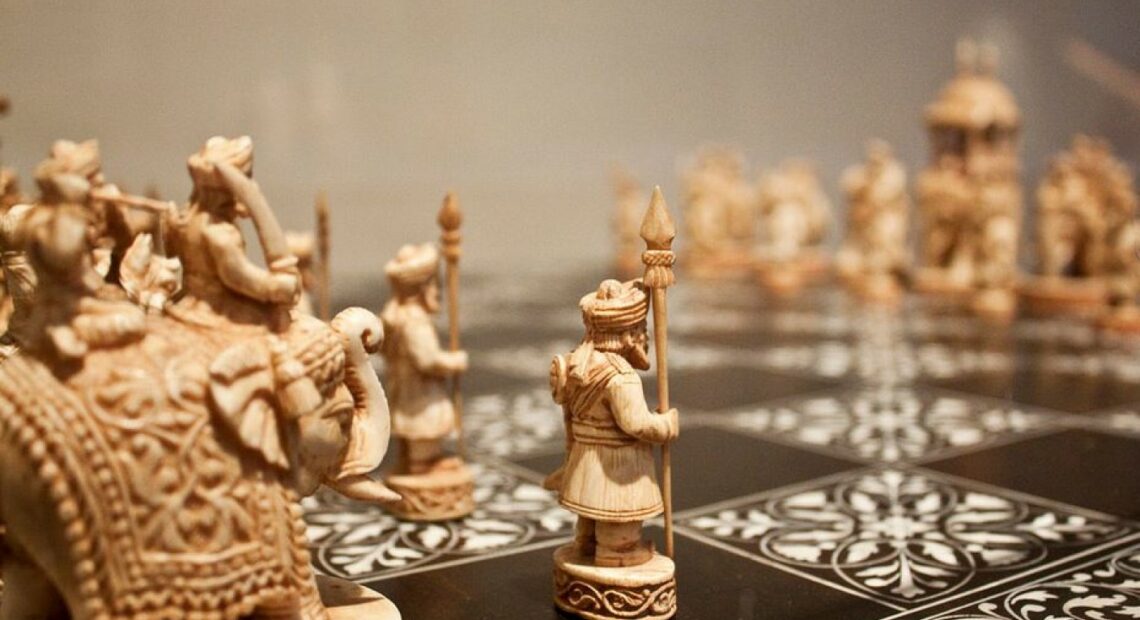Chess: A Timeless Game with Indian Origins

Chess, the renowned game of intellect and strategy, has captivated minds across the globe for centuries. But did you know that this timeless pursuit finds its roots in the ancient lands of India? In this blog, we embark on a fascinating journey to discover the origins of chess and explore the rich heritage it carries.
- The Birth of Chess in Ancient India:
Travel back in time to the 6th century in the Indian subcontinent, where chess made its humble beginnings. Known as “Chaturanga,” this ancient precursor to modern chess was a game of strategy played on an 8×8 board. Chaturanga translates to “four divisions of the military” and represented the various components of an ancient Indian army: infantry, cavalry, elephants, and chariots.
- Evolution and Expansion:
As Chaturanga spread across the region, it gained popularity and underwent gradual modifications. In the centuries that followed, the game continued to evolve, with different cultures adding their own unique elements. The Persian Empire, for instance, adopted and adapted Chaturanga, giving rise to “Shatranj.”
- Shatranj: The Persian Variation:
Shatranj, played on a 64-square board, emerged as a refined version of Chaturanga. The game gained significant popularity in the Islamic world during the medieval era. It featured unique pieces, including the vizier (later transformed into the queen) and the ferocious elephant (which transformed into the bishop).
- Chess Conquers Europe:
Shatranj made its way to Europe through trade routes and cultural exchanges. The game enchanted rulers, scholars, and nobility alike, eventually becoming a symbol of intellectual prowess. In Europe, the game underwent further transformations, with new rules and piece movements. By the 15th century, chess, as we know it today, took shape.
- Global Chess Phenomenon:
From the ancient streets of India to the grand halls of European castles, chess emerged as a game that transcended borders and cultures. Its allure extended beyond royalty and intellectuals, capturing the imagination of people from all walks of life. The spread of chess was fueled by various factors such as trade, colonization, and the rise of international competitions.
- Chess Today:
In the modern era, chess has become a global phenomenon, played by millions of enthusiasts across the world. The game has embraced technological advancements, with online platforms, computer analysis, and live streaming enhancing its accessibility and popularity. Chess tournaments, such as the World Chess Championship and the Olympiad, showcase the strategic brilliance and competitive spirit of players from diverse backgrounds.
Conclusion:
Chess, a game that originated in ancient India as Chaturanga, has transcended time and geography to become a beloved global pastime. Its strategic depth, mental stimulation, and cultural significance have cemented its status as a timeless pursuit. As we marvel at the intricate moves and strategic battles on the 64-square board, let us remember the rich heritage and roots of this ancient game that began in the cradle of Indian civilization. Chess truly stands as a testament to the enduring power of human ingenuity and the universal language of intellect.
So, the next time you embark on a thrilling game of chess, take a moment to appreciate the ancient Indian legacy behind the intricately carved pieces and the strategic maneuvers that have kept generations enthralled for centuries.
Picture Courtesy: Google/images are subject to copyright








